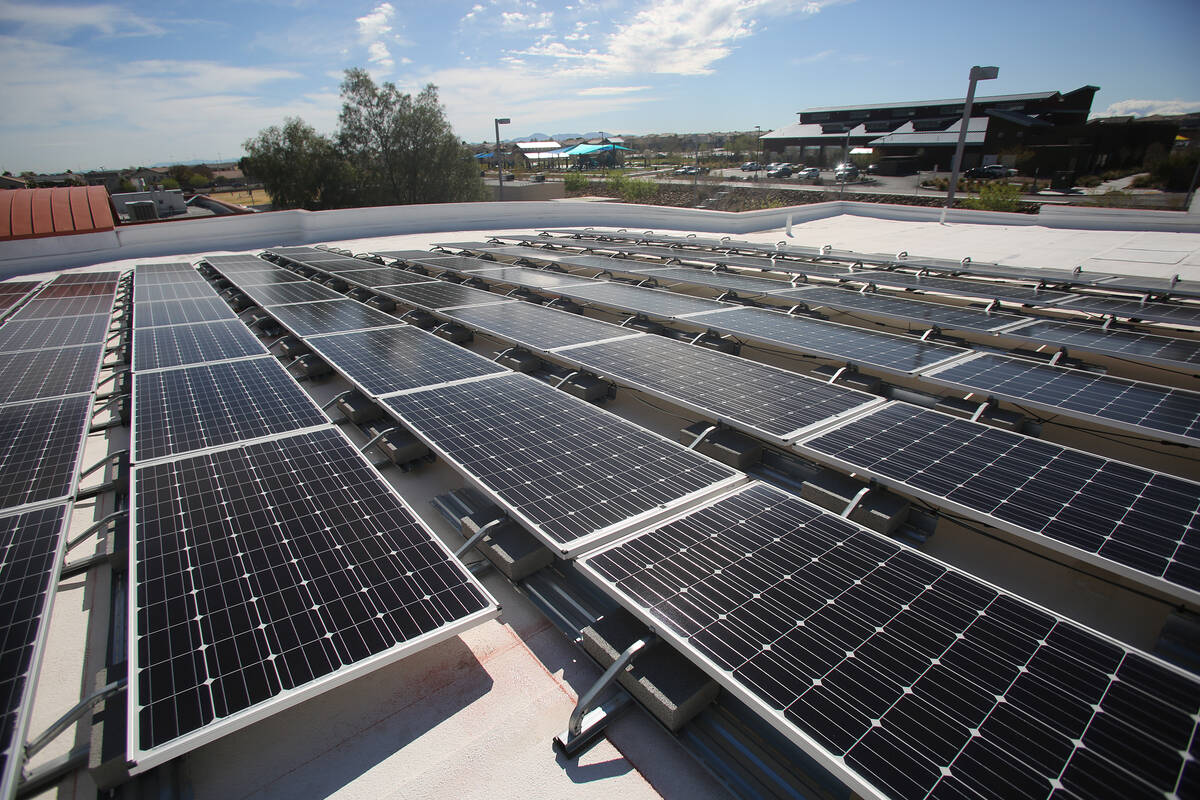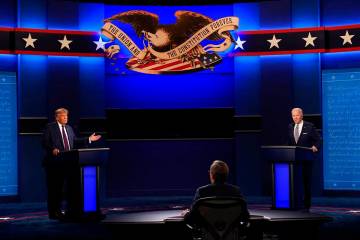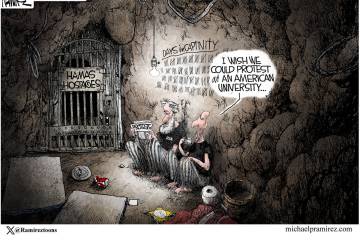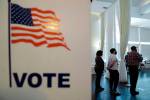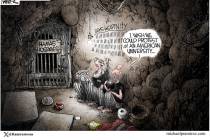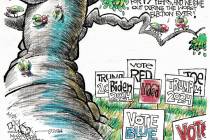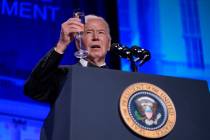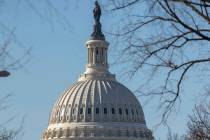COMMENTARY: Cloud still hangs over Nevada solar industry despite temporary tariff relief
President Joe Biden took a small step toward making solar power more affordable last week by delaying potential tariffs on imported panels and components. But Nevada’s energy future remains clouded by our nation’s misguided trade laws. Existing and potential import duties continue to force state residents to pay more for electricity while jeopardizing jobs in the solar industry and slowing efforts to reduce carbon emissions.
Despite last week’s announcement, the U.S. government continues to impose steep anti-dumping and anti-subsidy duties on solar cells and panels from China and Taiwan. Additional tariffs were imposed in 2018 against other nations — duties extended for another four years in February by the Biden administration.
On Monday, the White House announced a 24-month suspension on yet another potential round of tariffs that would extend duties retroactively to solar panel imports from Thailand, Cambodia, Vietnam and Malaysia. A Commerce Department investigation will continue and may still result in new duties once the suspension ends.
Championing the additional tariffs is a small solar-cell company in California. Auxin Solar in San Jose alleges that China has circumvented the original duties by shifting production to its southeast Asian neighbors. If the U.S. Commerce Department agrees, large import duties could eventually be imposed retroactively against countries now supplying about 80 percent of U.S. imports.
The threat of even higher import duties had paralyzed the domestic solar industry. Utilities, commercial users and home installers have been hesitant to start new projects under the threat of potentially high and retroactive tariffs. The domestic solar panel industry can meet only about 15 percent of domestic demand, requiring imports to enable solar projects to move ahead.
Tariffs have already inflated the cost and delayed installation of solar projects across the United States. According to the Solar Energy Industries Association, which represents a broad swath of the industry, the latest tariff threat had resulted in the cancellation or delay of more than 300 solar projects nationwide, reducing projected installation of new capacity in 2022 and 2023 by 46 percent.
Utilities account for two-thirds of the solar power capacity in the United States. That means that the higher cost for solar panels translates directly into higher rates for consumers. In a recent speech in Congress, Nevada Sen. Jacky Rosen pointed out that the state’s largest power company, NV Energy, will likely face “massive disruptions” to multiple solar projects because of the tariffs, affecting service for 114,000 homes in the state.
Tariffs imposed by Washington jeopardize far more jobs than they supposedly protect. Only 15 percent of workers employed in the solar industry actually produce solar cells and panels. The large majority work downstream in development, sales, installation, operations and maintenance. In a May 16 letter to Biden, a bipartisan group of 19 governors, including Steve Sisolak of Nevada, warned that, because of the threatened tariffs, “solar prices have jumped because of dramatic drops in solar product imports, threatening the livelihoods of more than 230,000 American workers who rely on solar jobs and raising energy costs on families.”
Solar tariffs also thwart efforts to reduce carbon emissions by making renewable solar energy more expensive. A utility company in Indiana has been forced to delay the retirement of one of its coal-fired generating stations because of the solar tariffs.
Government protection has not even saved much of a domestic solar-panel industry. Solar technology has become so widespread and the assembly of solar panels so labor-intensive that production has migrated to lower-cost countries. Despite a decade of tariff protection, imports still account for 85 percent of domestic consumption. While U.S. solar producers complain about “unfair trade,” they benefit from government mandates, subsidies and a 26 percent federal tax credit.
The Biden administration’s two-year suspension was welcome news, but the fundamental conflict between much-abused trade laws and promoting American solar energy use remains.
Ultimately, Congress needs to act to reform and restrict U.S. trade laws that are too easily manipulated by a few special-interest producers at the expense of the public. The laws should be reformed so that any decisions on tariffs must consider their impact on downstream users — in this case the solar installation and utility industries — and on consumers.
It’s absurd that one small company in California with a relative handful of employees can exploit a questionable trade law to paralyze Nevada’s transition to solar power.
Daniel Griswold is an adjunct scholar with the Cato Institute and author of “Mad About Trade: Why Mainstreet America Should Embrace Globalization.”



